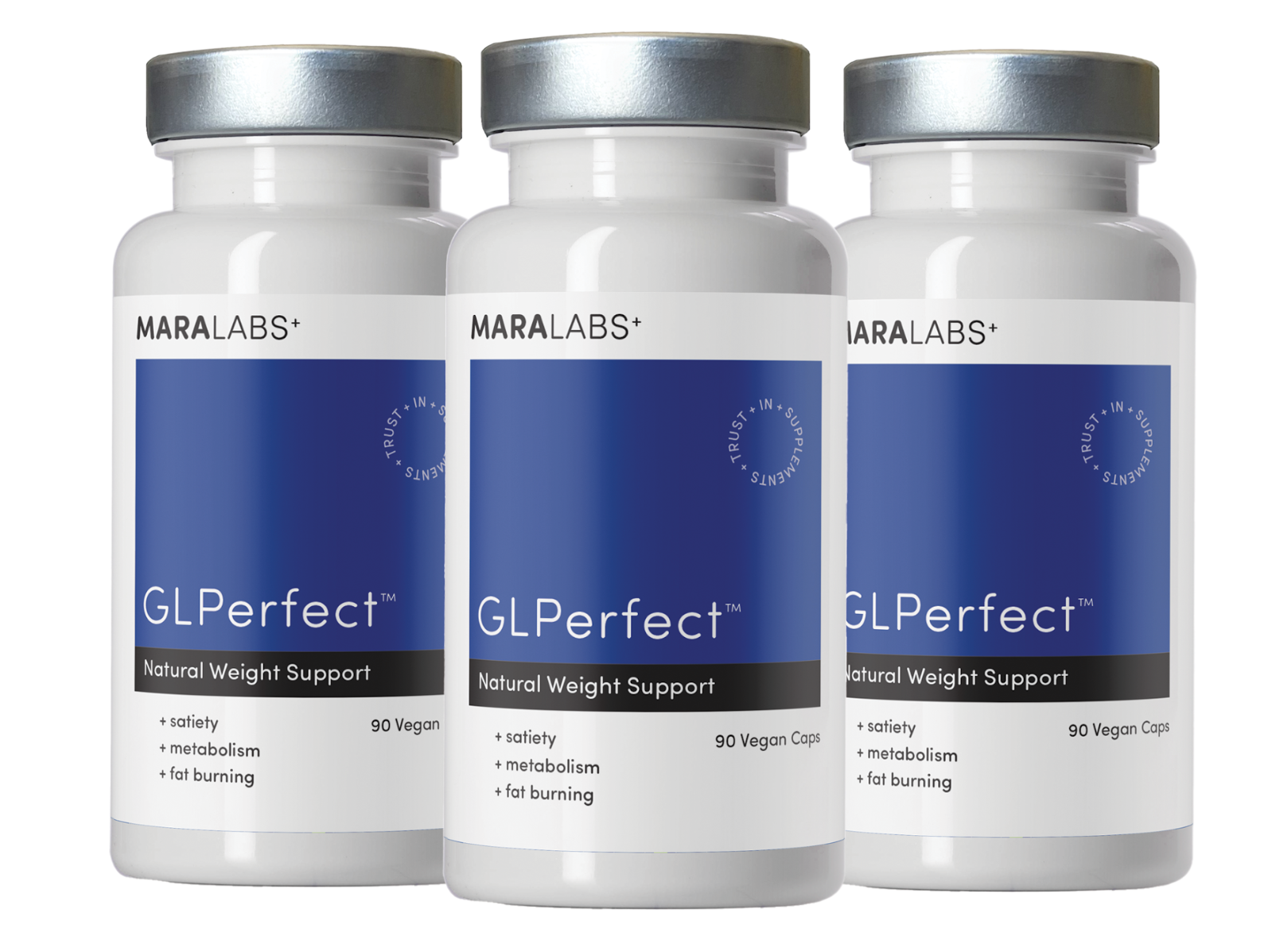¿Qué es la leptina?
Según la Biblioteca Nacional de Medicina, la leptina es una hormona peptídica que se libera del tejido adiposo (graso). Está codificada por lo que en la literatura se conoce como el gen ob (obeso). (1) Además, tiene la capacidad de reducir eficazmente la ingesta de alimentos y el peso corporal. De hecho, el tejido adiposo la secreta en proporción directa a la cantidad de grasa corporal. (2)
La leptina juega un papel importante en la regulación del apetito, afecta la función neuroendocrina y regula la homeostasis energética. Esta hormona fue descubierta en 1994 y, desde entonces, los estudios han demostrado que influye en otros procesos fisiológicos importantes. (3)
Otros procesos sistémicos que la leptina influye incluyen el metabolismo, la regulación endocrina y la función inmunológica. Dado que su descubrimiento es relativamente reciente, siguen surgiendo estudios actuales que amplían nuestra comprensión sobre sus implicaciones. (2)
¿Qué es la resistencia a la leptina?
La resistencia a la leptina ocurre cuando la energía almacenada en el cuerpo no se comunica correctamente con el cerebro. Este estado metabólico afecta la salud hormonal, la función tiroidea, el metabolismo, el estado de ánimo, el sueño y mucho más.
En la literatura científica, la resistencia a la leptina se define como un estado en el que la leptina no logra promover sus efectos esperados. Está estrechamente vinculada a la obesidad y, de manera interesante, también se presenta en situaciones fisiológicas como el embarazo y en animales con patrones estacionales. (5)
El Dr. Jack Kruse, uno de los principales neurocirujanos del mundo, explica cómo los niveles de leptina desempeñan un papel crucial en el inicio de la pubertad. (6)
Según Sarah Kleiner, educadora en salud cuántica y pionera en el movimiento de salud circadiana, la resistencia a la leptina a menudo precede a la resistencia a la insulina (problemas con la regulación del azúcar en la sangre). Ella afirma que muchos de los síntomas que se experimentan suelen atribuirse erróneamente al envejecimiento o a problemas hormonales. (4)
Sarah, junto con la Dra. Carrie Bennett (experta en salud circadiana), dirige un pódcast donde explican que la inflamación es una señal de que algo en el entorno necesita cambiarse antes de que se convierta en un problema mayor. La desregulación sistémica, como la resistencia a la insulina y la resistencia a la leptina, está asociada con la inflamación. Por lo tanto, podemos aprender a abordar estos problemas al explorar posibles desequilibrios biológicos.
¿Cuáles son los síntomas de la resistencia a la leptina?
Según la Dra. Sara Pugh y Sarah Kleiner (7, 8), algunos de los signos comunes de resistencia a la leptina incluyen:
- Mala calidad del sueño
- Resistencia a la insulina
- Diabetes
- Inflamación o hinchazón después del ejercicio
- Necesidad de café para realizar tareas básicas
- Niveles altos de cortisol y estrés
- Sensibilidad a la luz (necesidad de gafas de sol al salir al exterior)
- Niveles altos de azúcar en la sangre (incluso con una dieta carnívora)
- Problemas de tiroides
- Problemas de fertilidad
- Niveles altos de T3 inversa y/o problemas de tiroides
- Ansias constantes de comida
- Dificultad para perder peso (incluso con dietas bajas en carbohidratos o ayuno)
¿Qué causa la resistencia a la leptina?
Algunos hábitos de vida modernos que contribuyen a la resistencia a la leptina incluyen:
- Dietas bajas en proteínas y altas en grasas y carbohidratos (14)
- Exposición crónica y excesiva a la luz artificial durante la noche
- Falta de luz solar natural y sin filtrar durante el día
- Mitocondrias ineficientes
- Permanecer siempre en ambientes con temperatura controlada (sin exponer el cuerpo a temperaturas frías o calientes)
- Ritmo circadiano desregulado (9)
¿Cómo revertir la resistencia a la leptina?
Según el Dr. Jack Kruse y otras fuentes científicas, puedes revertir la resistencia a la leptina haciendo cambios consistentes en tu dieta y entorno lumínico: (10, 11, 12, 14, 15)
- Mira la mayor cantidad posible de amaneceres.
- Come una comida rica en proteínas dentro de los primeros 30 minutos al despertar (entre 30 y 50 g de proteína).
- Incluye una fuente adecuada de proteínas en cada comida.
- Sal al exterior durante el día para recibir luz solar natural.
- Deja 4-5 horas entre la cena y la hora de dormir; esto permite que la leptina se conecte con el hipotálamo a la hora nocturna adecuada y optimiza la utilización de la melatonina.
- Limita la exposición a la luz artificial durante la noche.
De manera alentadora, un estudio de 2022 muestra que el sulforafano ayuda a revertir la resistencia a la leptina. El sulforafano está disponible en una dosis funcional y biodisponible en BrocElite. (13)
Exposición al frío y al calor para mejorar los niveles de leptina
La exposición al frío, como los baños helados, está ganando popularidad en la comunidad de biohacking. No se trata solo de reducir la inflamación o ayudar a los atletas a recuperarse. Los estudios muestran que la exposición al frío afecta la señalización de la leptina, lo que resulta en una menor grasa corporal y una reducción del apetito. Esto ocurre porque el tejido adiposo actúa como un órgano endocrino que produce sustancias hormonales, incluida la leptina, que desempeña un papel clave en los procesos de termorregulación.
Además, los estudios también muestran que la exposición al calor, como el uso de saunas, mejora los niveles de insulina y leptina. (16, 17, 18, 19)
References:
- https://www.ncbi.nlm.nih.gov/books/NBK537038/
- https://pmc.ncbi.nlm.nih.gov/articles/PMC6893721/
- https://pmc.ncbi.nlm.nih.gov/articles/PMC3413641/
- https://www.instagram.com/p/DCjzGDeueBf/
- https://joe.bioscientifica.com/view/journals/joe/241/3/JOE-18-0606.xml
- https://jackkruse.com/central-leptin-dominance-part-2/
- https://www.youtube.com/watch?app=desktop&v=r2ISXn55U6M&t=0s
- https://www.instagram.com/p/DCjzGDeueBf/
- https://www.instagram.com/p/DCe-BUryxeU/?img_index=1
- https://jackkruse.com/leptin-reset-easy-start-guide/
- https://jackkruse.com/chapter-one-on-leptin/
- https://www.tiktok.com/t/ZP8L4UfST/
- https://elifesciences.org/articles/67368
- https://www.frontiersin.org/journals/endocrinology/articles/10.3389/fendo.2021.749050/full
- https://pmc.ncbi.nlm.nih.gov/articles/PMC3440859/
- https://www.frontiersin.org/journals/physiology/articles/10.3389/fphys.2017.00581/full
- https://pmc.ncbi.nlm.nih.gov/articles/PMC7143756/
- https://www.mdpi.com/1422-0067/25/1/46
- https://www.sciencedirect.com/science/article/abs/pii/S0306456523001924









0 Comment